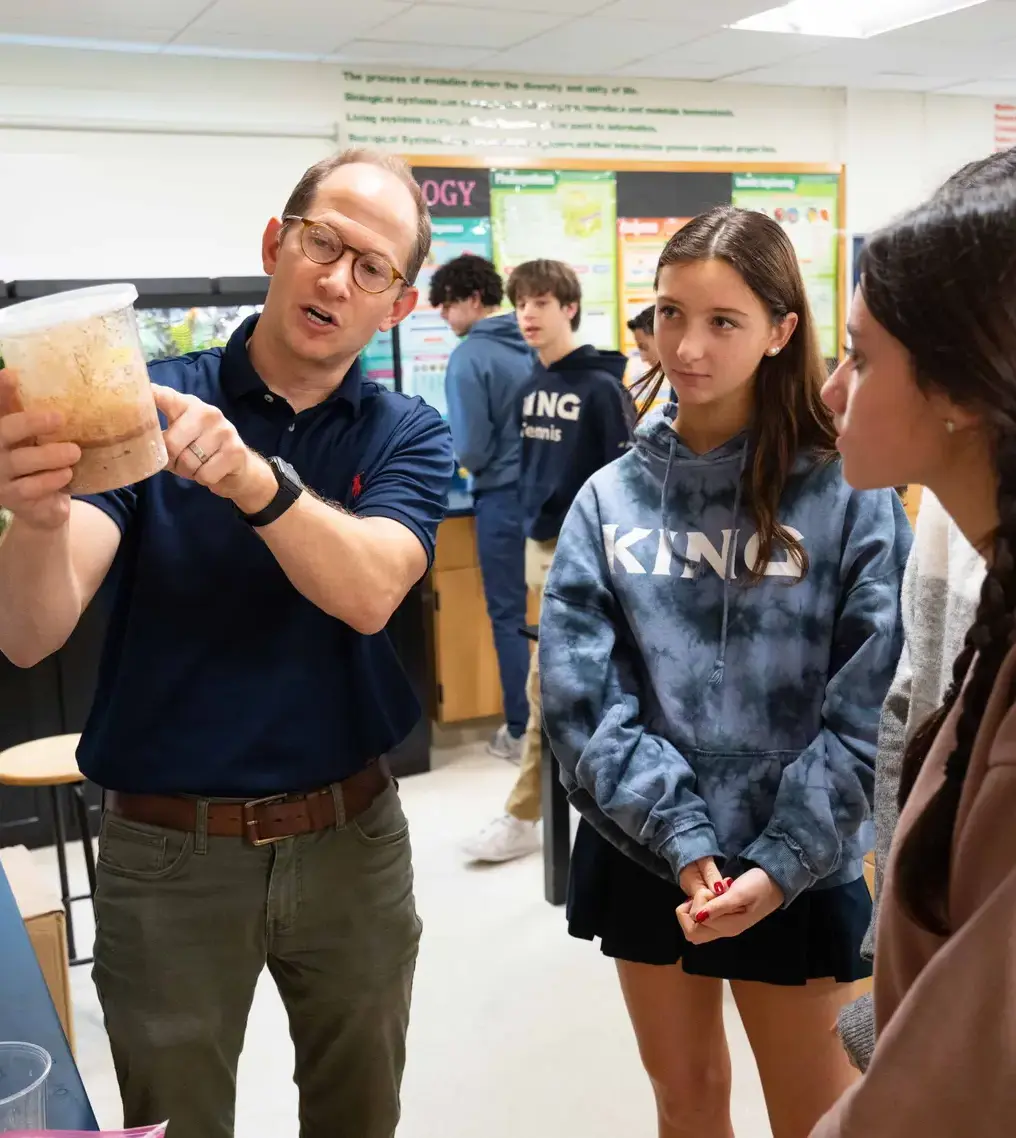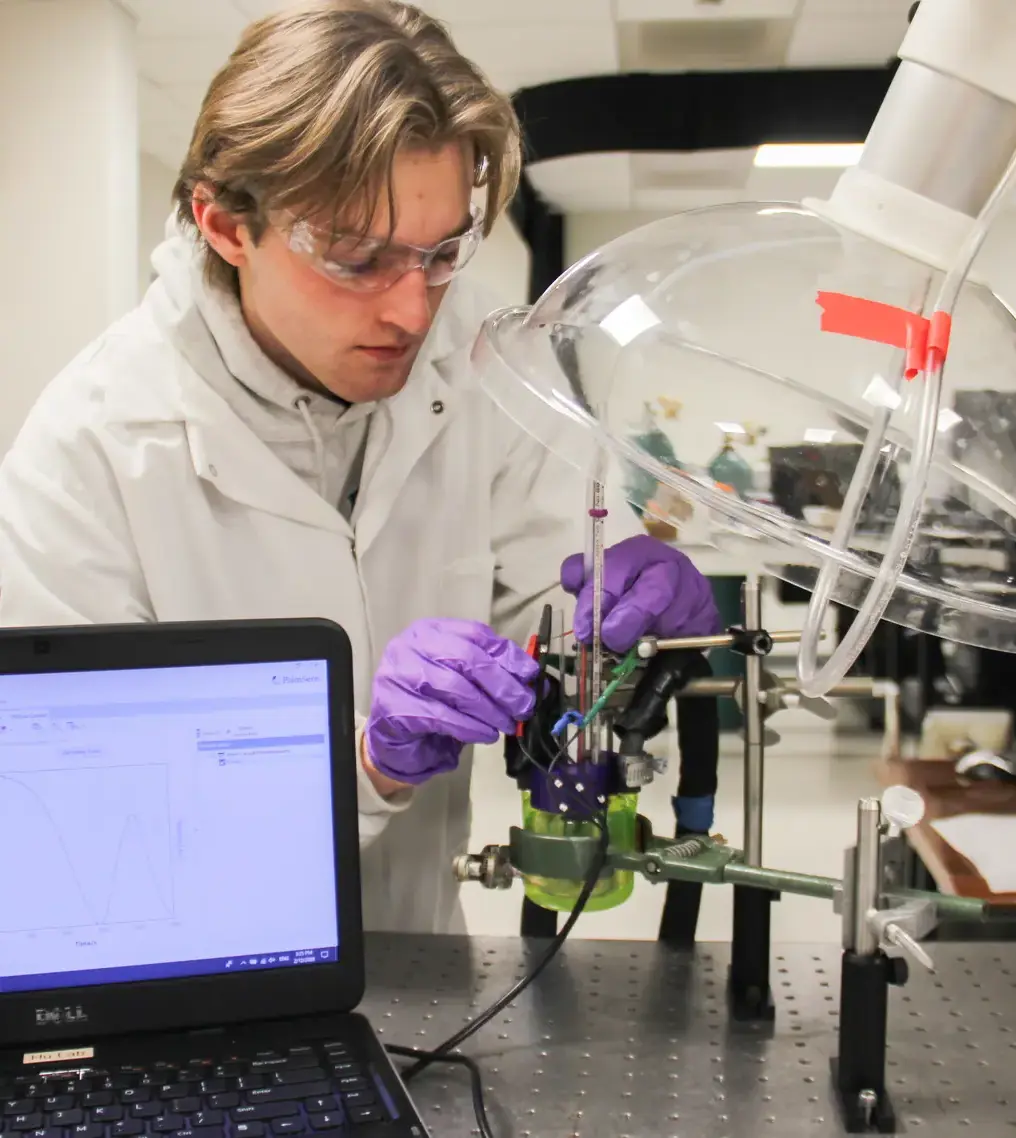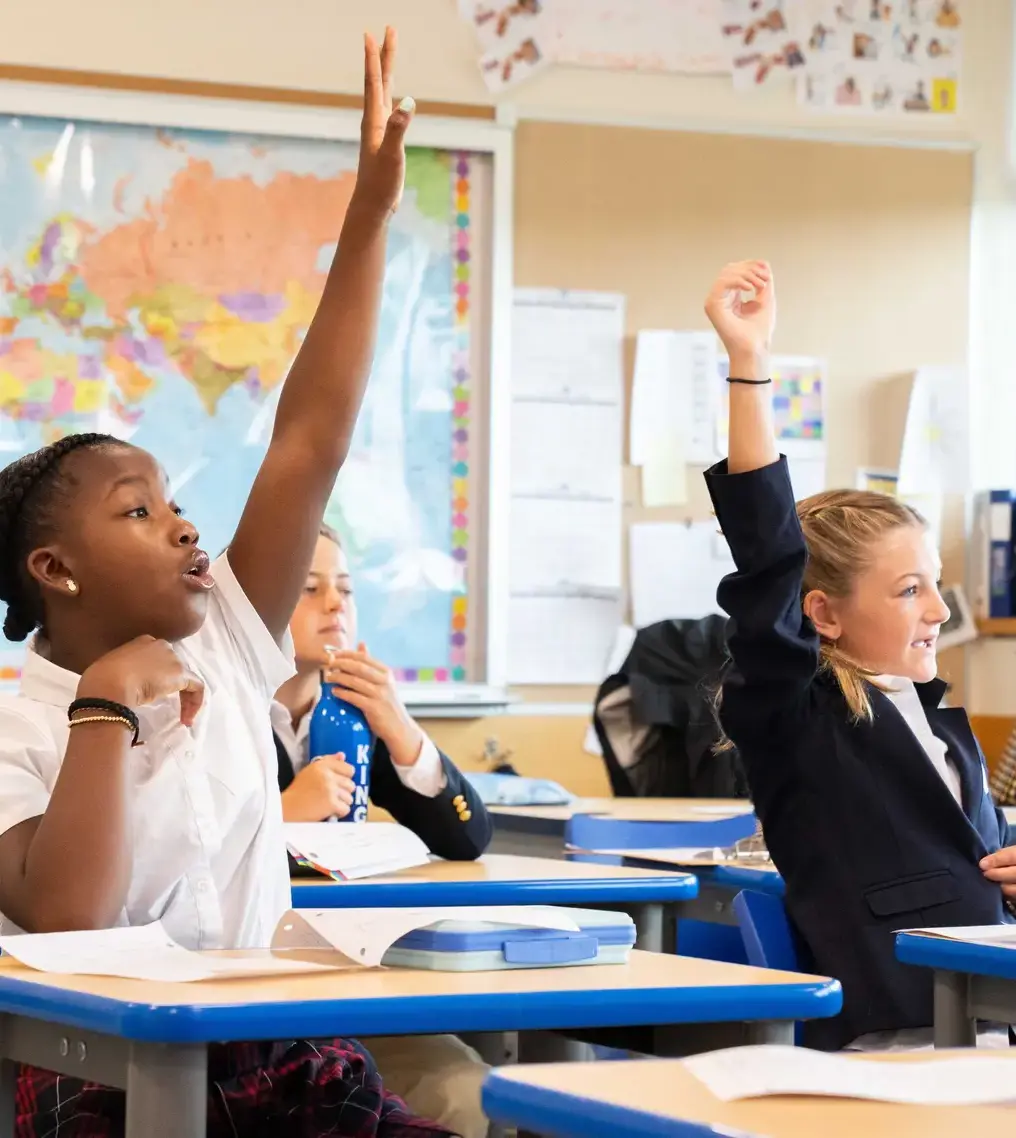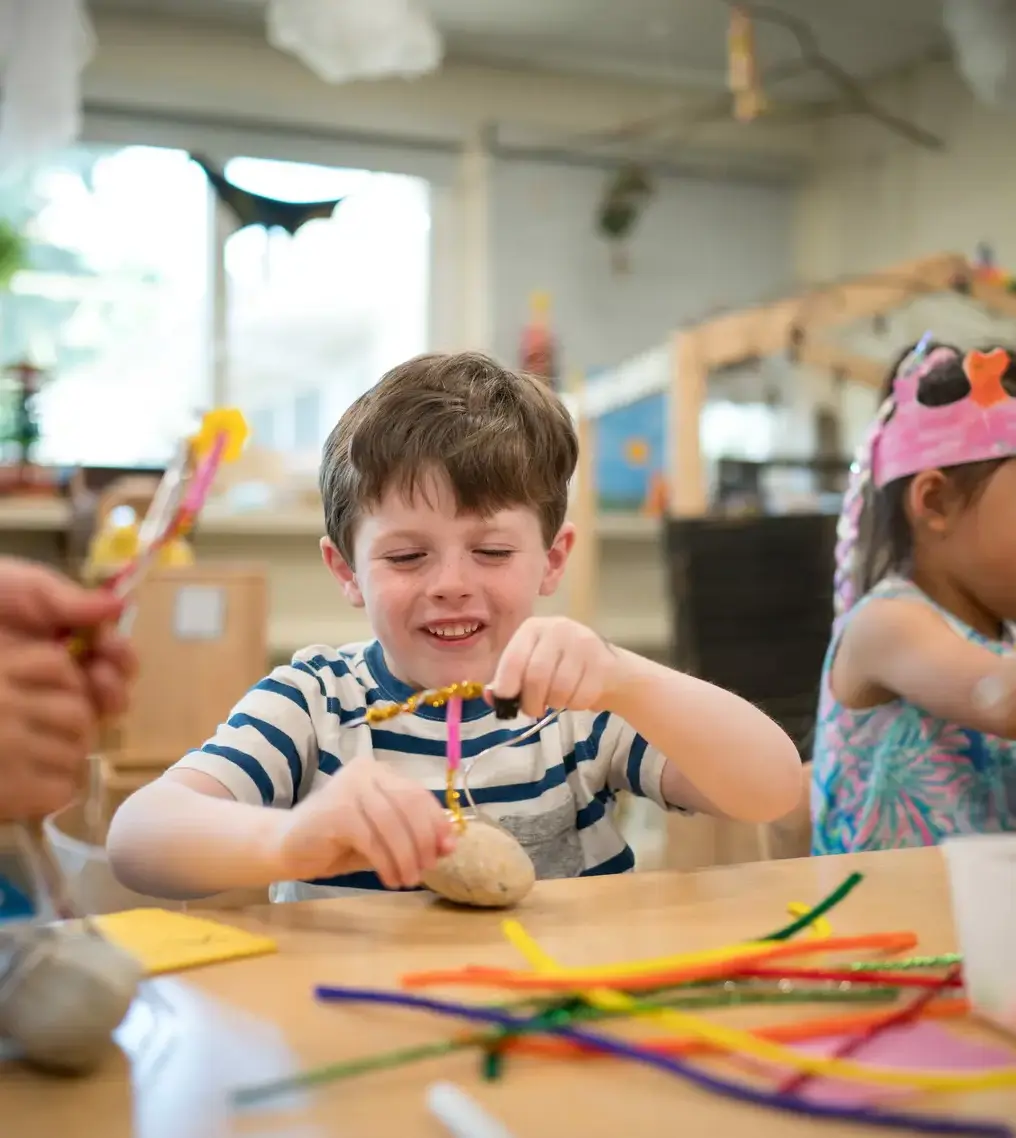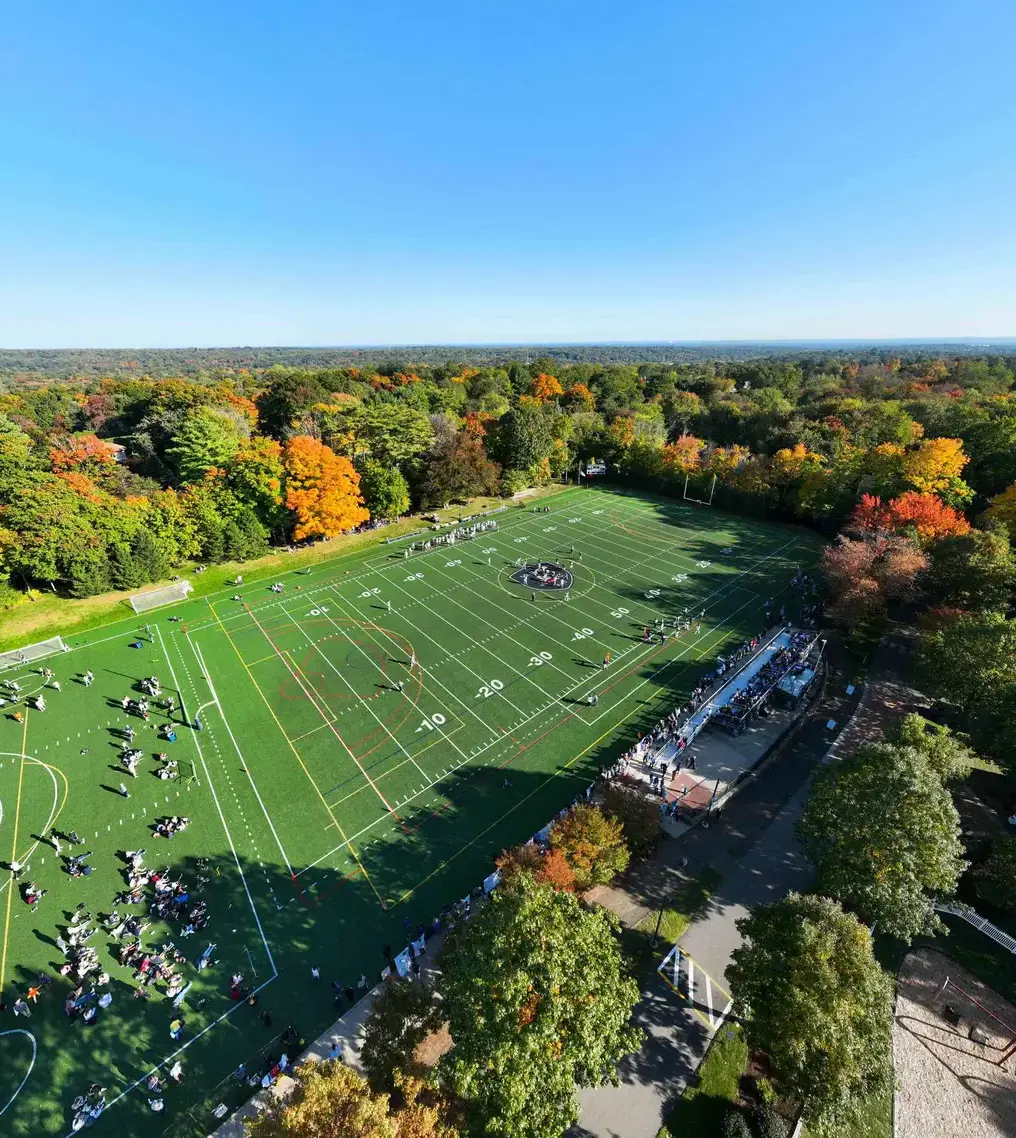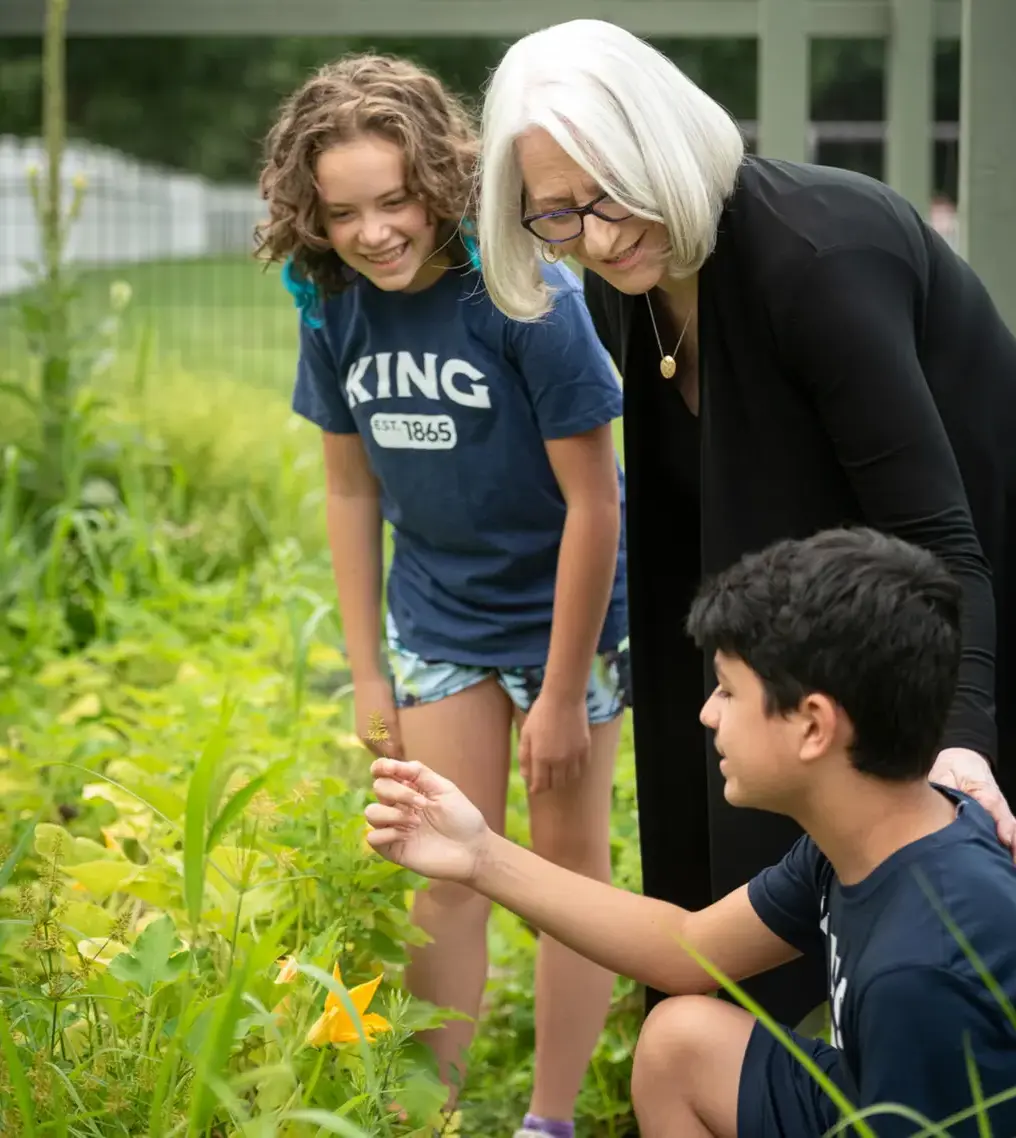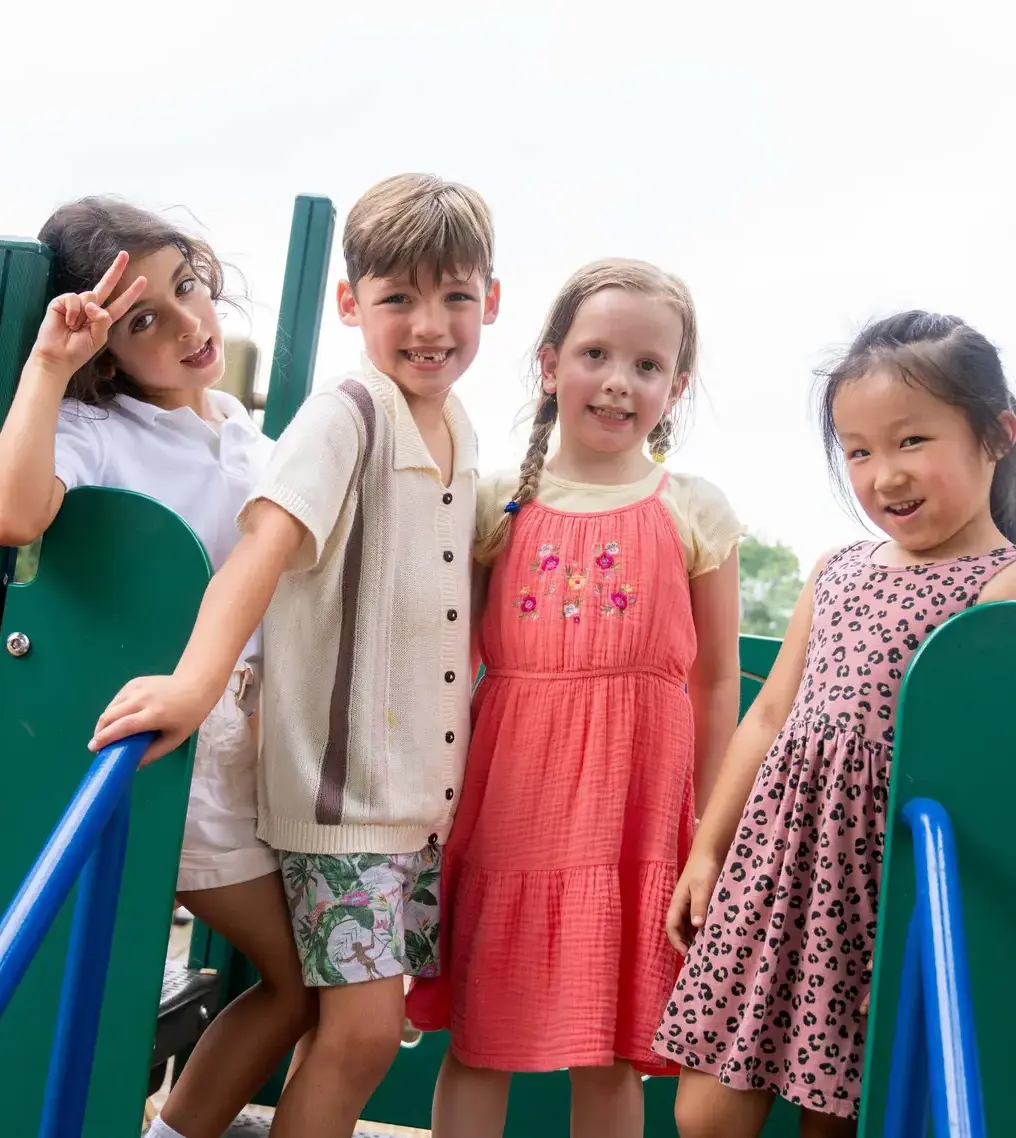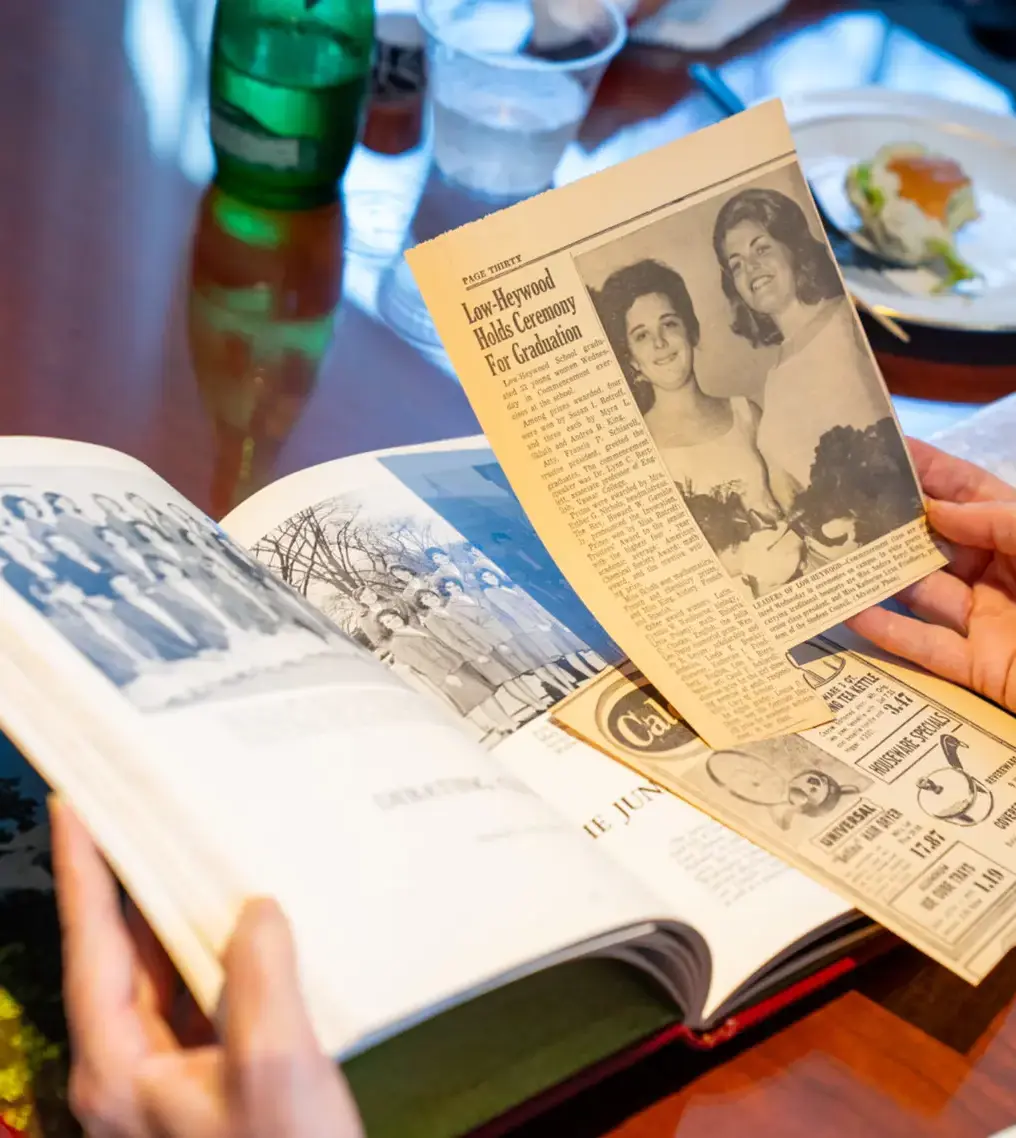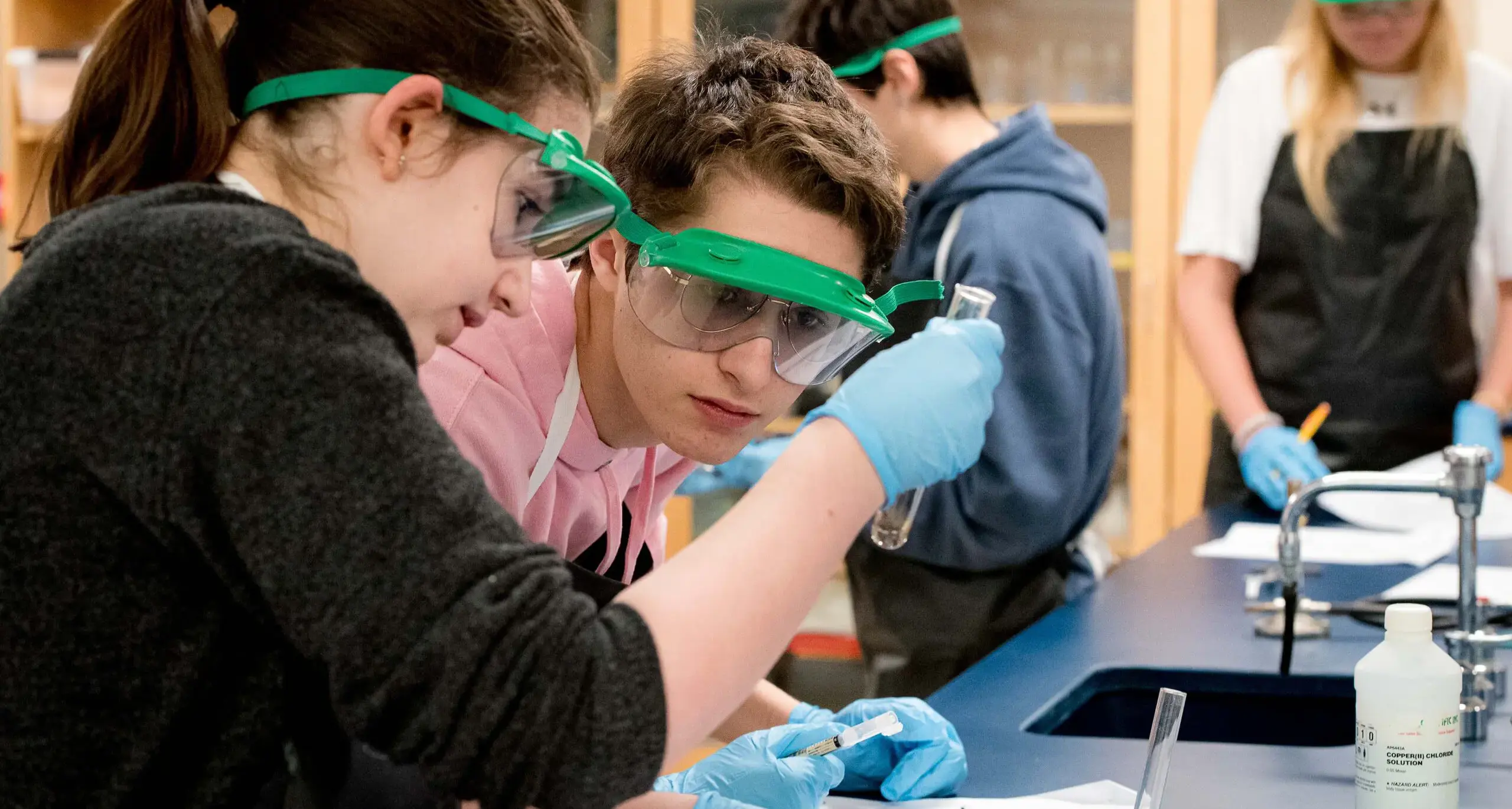Advanced Science Program for Independent Research and Engineering (ASPIRE)
ASPIRE is King School’s elite two-year science research program designed to offer hands-on, high-level experiences to King School’s most promising, top-achieving upper school students to better prepare them for a career in research prior to college.
Students in this program participate in on and off-campus research opportunities where they receive mentoring, training, and guidance while focusing on their research. |
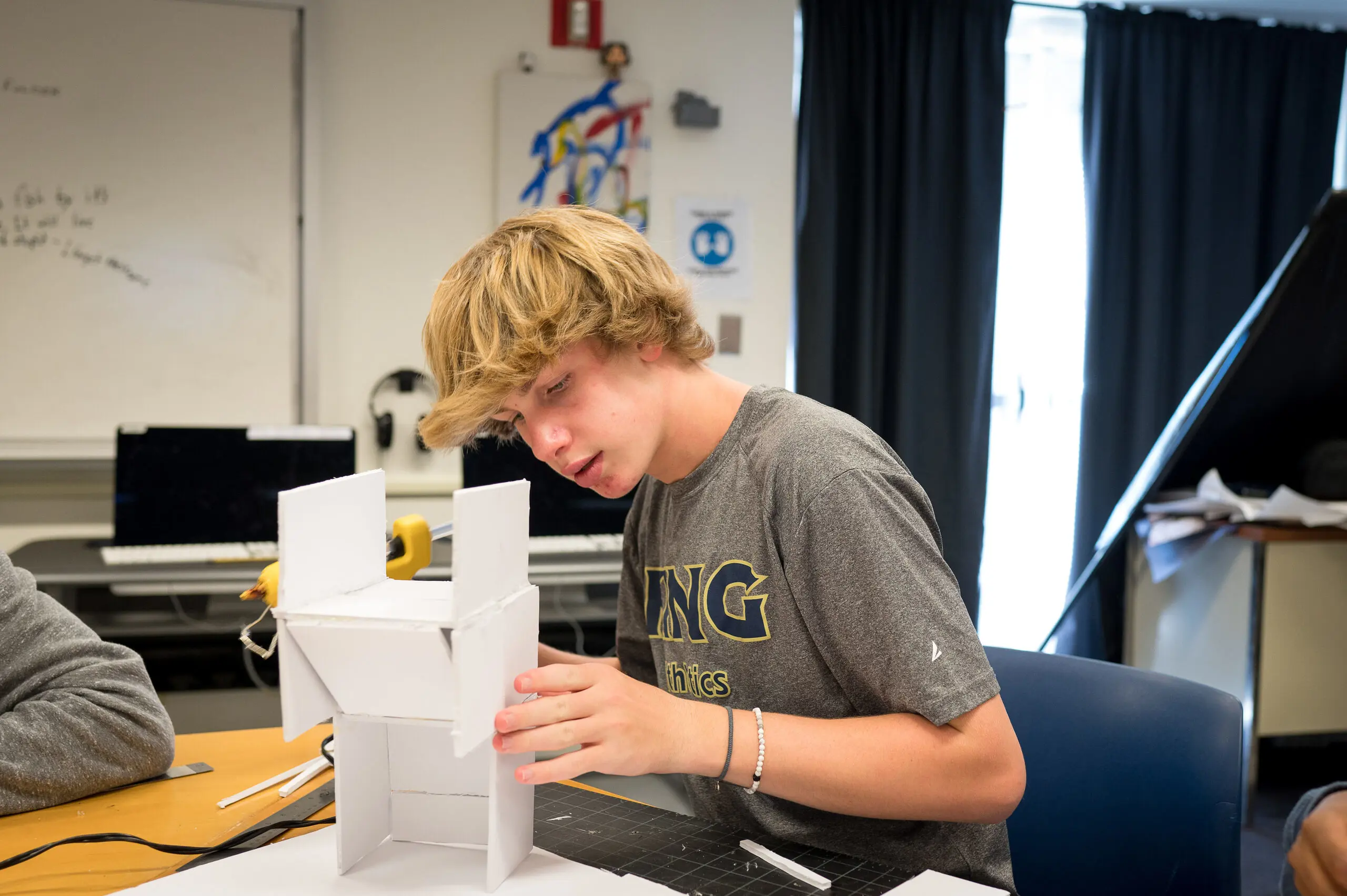
Internships and Advanced STEM
The ASPIRE program consists of two main components:
- An internship at a renowned laboratory of the student’s choosing to get hands-on experience in the field of modern scientific research.
- Enrollment in the Advanced STEM Research course, where students learn how to appropriately communicate their research in both written and oral formats, such that students are competitive at local, state, regional, national, and international science fairs and research competitions. With this training, students are also capable of publishing their work in prestigious research journals.
Students intern at their lab placements for the remaining two summers of their time at King for this two-year program. Current and prospective interested students should contact Dr. Victoria Schulman, vschulman@kingschoolct.org, for more information.
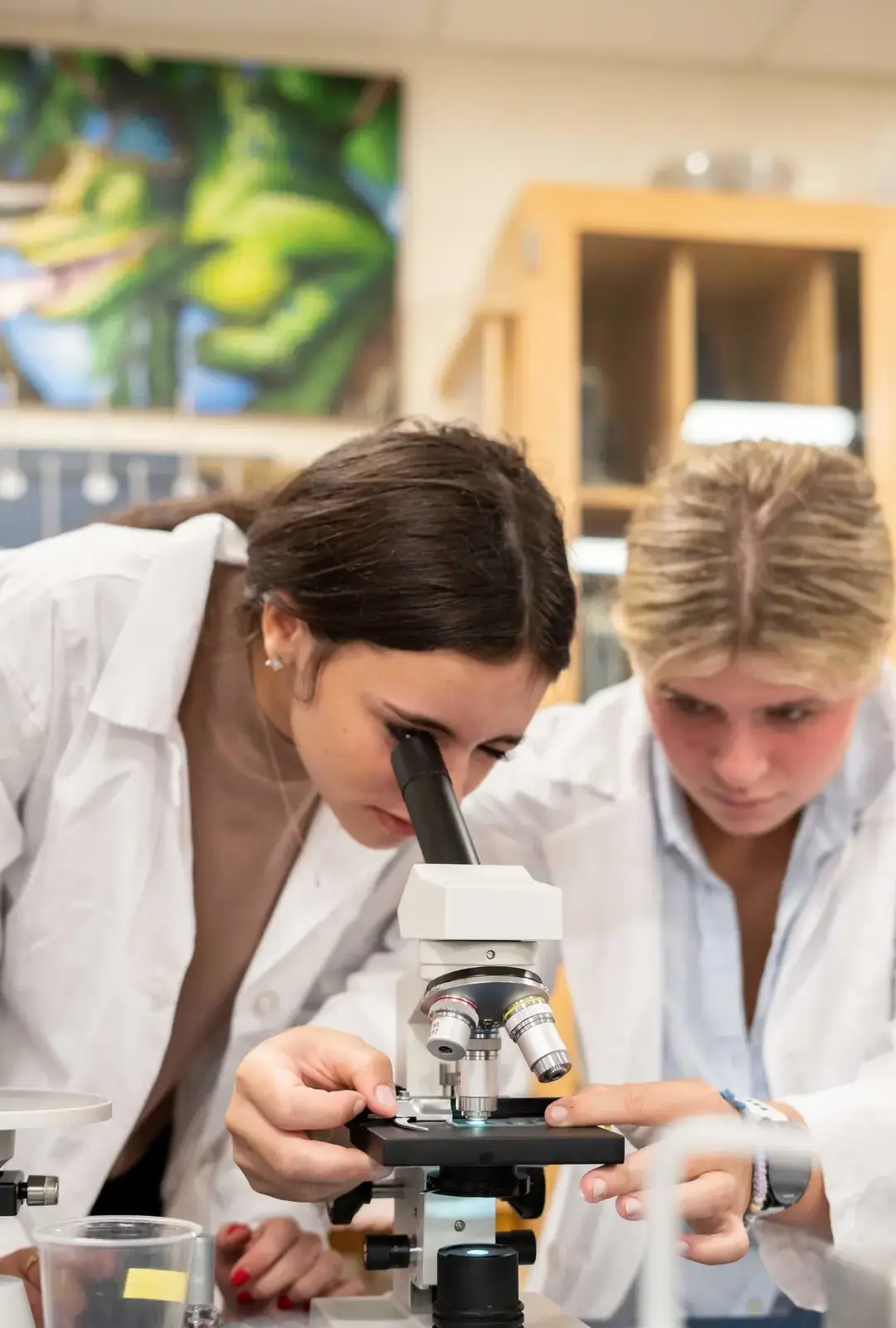 |
Established in 2018 by Margharet, Frank, Bea '15 and William '17 Nash the Advanced Mathematics and Science Study Program endowed fund supports select students with demonstrated ability and interest in achieving true excellence within science, technology, engineering, and/or mathematics in global competition preparation, and/or laboratory research experiences. If you are interested in supporting this opportunity for students, please contact the development office to discuss how your gift can help. |
Program Timeline
King students are eligible to apply for the ASPIRE program, which spans 2.5 years, in the fall of their sophomore year.
| Fall of Sophomore Year |
|---|
| Students begin the program with a pre-internship class, learning how research is conducted, how a typical lab is organized, what the traditional path to a doctorate degree looks like, how to search for and critically read primary research articles, and how to identify research questions from those readings to aid in the design of their future research project. |
| Summer Before Junior Year |
| In the summer before junior year, ASPIRE students spend 8-10 weeks working full-time in an R01-level research lab for the first of two summer intensive internships. The Research Project Grant (R-01) is the oldest and most prestigious grant mechanism used by the National Institute of Health (NIH). R-01 labs conduct research at the highest level. The sustained involvement with the same lab over two summers and a school year makes the research mentor’s investment in training the student highly worthwhile, as the student is able to make meaningful contributions to the lab. |
| Junior Year |
| Students continue to work in the lab about one day per week during the academic school year to continue moving their projects forward. Students simultaneously enroll in the Advanced STEM Research course at King School, in which they learn how to compose figures of original data, write research manuscripts, and compose and present video and PowerPoint-style oral presentations of their research. During this year, they are also required to enter their work into a variety of research competitions and science fairs at the local, state, and national levels. |
| Summer Before Senior Year |
| The junior school year is bookended with a second summer intensive internship in their research lab between the junior and senior years. Once again, students spend 8-10 weeks working full-time in the lab for their second summer intensive research internship, which constitutes the final stage of their lab work experience. |
| Senior Year |
| During their senior year, students cease work in the lab to focus their efforts on preparing their applications for college, the Regeneron Science Talent Search, and other science competitions. To aid in this work, students also re-enroll in the Advanced STEM Research course to hone their writing, presentation, and data/science communication skills. |
At the conclusion of the two-year program, students give their final presentation to the Upper School at the STEM Colloquium in May.
2024-25 School Year Aspire Projects
| Parker Hayashi ’25 |
|---|
|
| Zach Louizos ’25 |
|
| Maddie Scanlon ’25 |
|
| Dillon Maltese ’26 |
|
| Bruno Reinhoefer Ribeiro ’26 |
|
| Vito Scutari ’26 |
|
| Lucia Vivanco ’26 |
|
| Leon Wang ’26 |
|
Highlights of ASPIRE
During each academic year, students are required to submit the current state of their research projects to a variety of competitions and conferences as part of the student’s grade in the Advanced STEM Research course. The purpose of participating in high school research competitions and professional research conferences is to provide opportunities for the students to hone their presentation and communication skills, network with professionals who may open more doors of opportunity for the students, and provide an avenue through which students can receive external validation for their work in the form of recognition, prizes, accolades, and scholarships.
Since 2020, King students have competed successfully in every state and regional competition they were qualified to enter. This is the ultimate goal of the course and the research program as a whole.
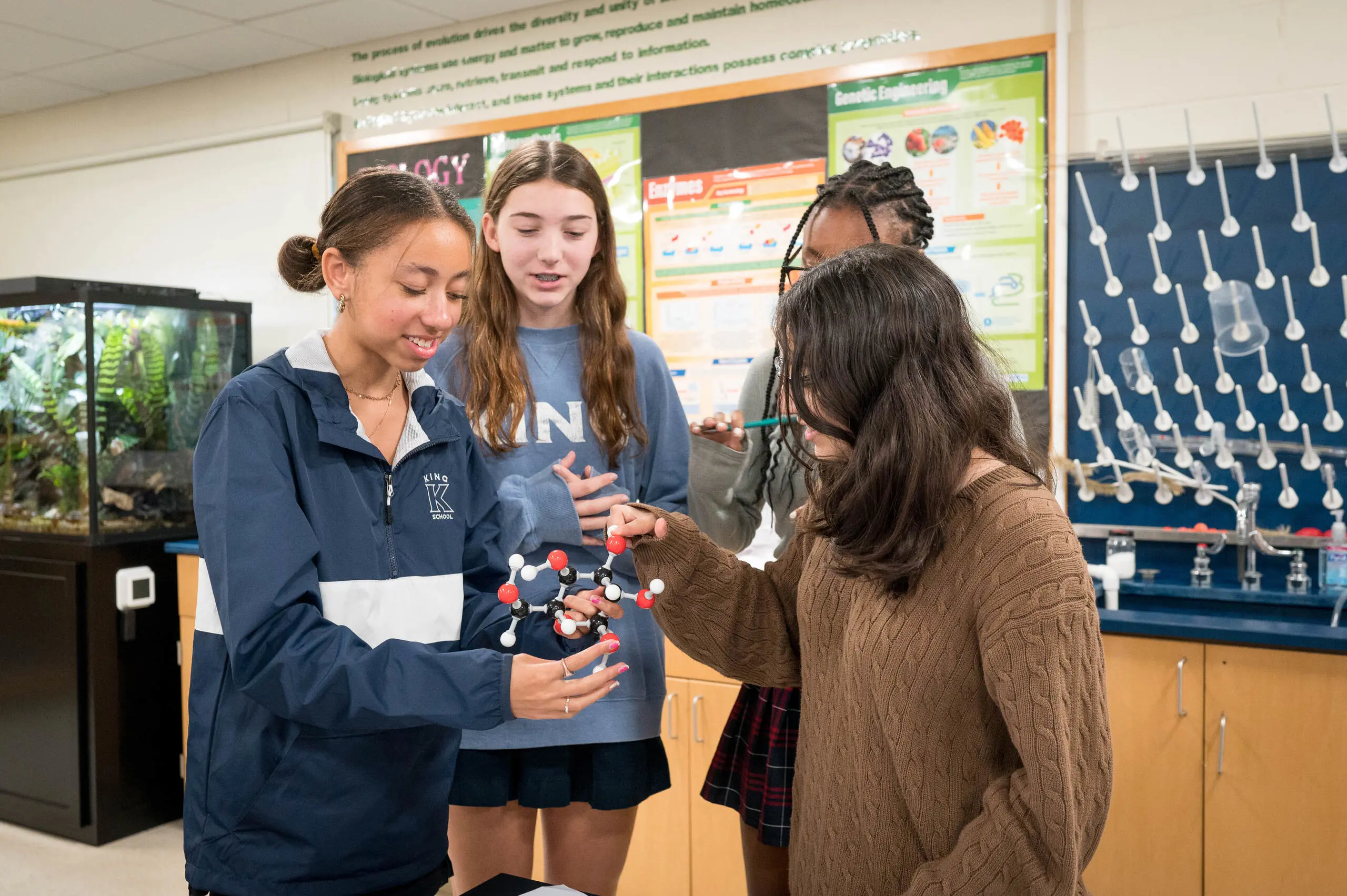
Student Achievements and Awards
2024 Graduates' Projects
| Antonia Kolb |
|---|
|
| Layla Shah |
|
| Ryan Wempen |
|
2023 Graduates' Projects
| Gouri Krishnan |
|---|
|
| Ben Persily |
|
| Yuriy Sandmeier |
|
2022 Graduates' Projects
| Giovanna Armetta |
|---|
|
| Billy Bernfeld |
|
| Adam Nomani |
|
| John Russell |
|
2021 Graduates' Projects
| Jacob Boyar |
|---|
|
| Ryan Heaton |
|
| Sammy Hillenmeyer |
|
| Nadia Kucher |
|
| Alex Lim |
|
| Joe Winterlich |
|
2020 Graduates' Projects
| Harry Amadeo |
|---|
|
| Olivia Sheridan |
|
2019 Graduates' Projects
| Portia Cummings |
|---|
|
| Mallory Ehlers |
|
| Ashley Xu |
|
As part of the ASPIRE program, working with a real laboratory and helping conduct original research while I am still in high school is beyond my wildest dreams. The future of DNA as a nanomaterial is as extensive as the combinations it can produce, and the opportunity to work with it is now steering my thoughts towards a career in molecular biology. |
| Meet the Director of Science Research |
|---|
|
Meet the Director of Science Research Dr. Schulman earned her Ph.D. in Biomedical Sciences from Weill Cornell Medical College and completed her Postdoctoral research training at Yale University School of Medicine. She has 15+ years of research experience, having worked at many prestigious institutions, including the National Institutes of Health (NIH; Bethesda, MD), the Armed Forces Institute of Pathology at Walter Reed Army Medical Center (Washington, DC), Memorial Sloan-Kettering Cancer Center (New York, NY), Weill Cornell Medical College (New York, NY), and Yale University (New Haven, CT). As a researcher, she was well respected in her field. Having published eight research papers, she was an invited speaker at three national/international research conferences and two national symposiums. She also earned numerous accolades for her research, including the William E. Kirwan Junior Investigator Research Award, the Vincent du Vigneaud Award of Excellence, the Golden Key International Scholar Grant, an NIH Research Grant, and she was even the recipient of the Distinguished Student Award for her graduating class at Weill Cornell Medical College and gave the keynote address at graduation. After changing careers in 2016 to teaching, Dr. Schulman has brought her expertise to the students at King School, where she mentors young, budding scientists and engineers as they pursue their research interests and present their findings and developments at local, state, regional, national, and international science fairs and research competitions. For her mentorship successes, she has been awarded the Junior Science and Humanities Symposium Regional Teacher Award for Excellence in Research Education, the Education 2.0 (Education of the Future) Outstanding Leadership in STEM Education Award, and been named a Distinguished Modern Classroom Educator and Expert Mentor as well as a Regeneron National Teacher of Merit.
|
Sammy Hillenmeyer '21
While I am studying topics in college that are drastically different from the research I did in high school, the skills learned from the ASPIRE experience are still very valuable to my work. Problem-solving, critical thinking, and collaboration are necessities in the field, no matter what major you end up entering. I have designed and built (with my class) a sample 100-foot bridge in an effort to learn about the forces in a suspension bridge and how to most efficiently put it together. It was a very cool and hands-on project, similar to my research in the lab. I declared civil engineering as my major.
Portia Cummings '19
I am a biology major in my final year at Columbia University and applying to medical school this year. Currently, I am conducting research in the Kim lab which investigates therapies to halt blood vessel growth in cancers, a process known as tumor driven angiogenesis. We target factors that destabilize tumor blood vessels and make it more difficult for immune cells to infiltrate and eradicate cancer cells. Through this research, we hope to elucidate the mechanisms underlying tumor driven angiogenesis and increase the efficacy of anti-angiogenic therapies. The ASMR/ASPIRE program introduced me to the field of cancer biology and aided in my early development of many fundamental laboratory skills. This exposure to basic and translational research had a huge impact on my ability to read and present scientific papers as well as comprehending how a research lab operates. It has been essential in determining my future career objectives, and I am very grateful to have had access to this opportunity while at King.”
Harry Amadeo '20
Getting a start in ASPIRE and now working in a propulsion lab solidified my passion for the aerospace industry and has made me more excited than ever to start a career in this field. Currently, I am doing undergraduate research at Purdue's Zucrow Propulsion Laboratories. I am working under a DARPA-funded program, in which we are training artificial intelligence to predict rocket propellant characteristics. Instead of running a multitude of tests on one propellant to determine its attributes, an AI could provide a solid baseline for future use. This will allow for time and money to be saved when researching and developing new propellants.

